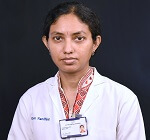Pfizer Ophthalmics Carl Camras Translational Research Awards
This award for young investigators working in areas of translational research honors Dr. Carl Camras, who is highly respected for his work as a glaucoma specialist and a research scientist. He is most widely recognized for developing prostaglandin analogues for the treatment of elevated IOP in patients with glaucoma. During his distinguished career, he took a personal interest in developing the next generation of eye and vision researchers.
Up to three awards of $12,000 each will be presented annually. This award, which was established in 2010, is supported by Pfizer Ophthalmics through the ARVO Foundation.
Eligibility
Eligible nominees include young researchers who are 45 years of age or less at the time of nomination. Eligible nominees will have exhibited excellence in research and their fundamental scientific discoveries, concepts and novel technologies. Their discovery or observation must have led to, or have the promise of leading to, clinical application.
Other specific eligibility requirements for the nominee and the nominator include:
- Neither nominees nor nominators are required to be ARVO members.
- Foundation and ARVO Officers, Board members and Awards Committee members are not eligible to nominate or be nominated for an award during their terms, or to offer seconding letters of support.
- Nominators and seconders may only support one nomination and should not be from the same institution as the nominee.
- Previous recipients of the ARVO/Pfizer Translational Research Awards are not eligible.
Additional information:
- Nominations may be resubmitted for a future year if unsuccessful.
Nomination process
Nominations are accepted via online application. The online nomination form requires the following information, forms and documents:
- One letter of nomination from the nominator, describing in detail the contributions of the nominee and the impact of his/her translational research.
NOTE: Research that has possible translational implications at a later stage of development, such as snp polymorphisms associated with disease that have not yet lead to interventions, are not appropriate for this award.
- Three supporting letters
- A brief summary statement of nominee's significant achievements (maximum 75 words).
- The nominee's five most significant articles must be referenced individually in the nomination form.
- The nominee's current NIH biosketch or equivalent.
- Indication of nominee's translational research having relatively immediate practicality for clinical care. Such support might consist of the following, but is not limited to these examples:
- The research has led to an intervention-drug or device, for example- that is currently in Phase 1, 2 or 3 clinical trials
- The research has led to a finding, like smoking and risk of AMD, that is now generally accepted and could result in preventive strategies.
- The research provides strong, original evidence for change in clinical practice, such as overnight contact lens wear and risk of infection.
Review and selection process
Applications are reviewed by the ARVO Foundation Awards Committee comprised of internationally recognized experts. The deliberations of the Foundation Awards Committee are confidential and their decision is final.
Timeline
Applications open on July 1
Applications close on Sept. 1
Recipients notified in December
2022 Recipients

PremNandhini Satgunam, PhD
LV Prasad Eye Institute
India
Jee Myung Yang, MD, PhD
Asan Medical Center, University of Ulsan College of Medicine
Republic of Korea

